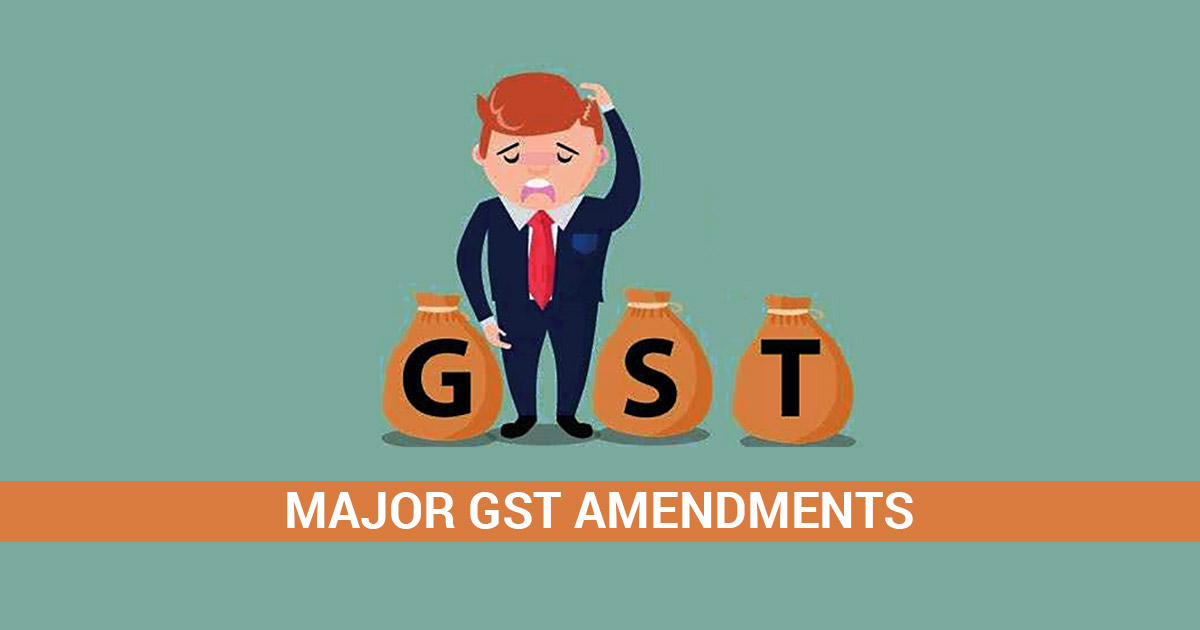We have seen that GST has undergone several changes since its inception in India. The GST era has not gone on a smoother path ever since it has been implemented.
Below is the list of changes which has been done in GST and effective from 1st Feb 2019.
- The upper turnover limit for being eligible for the composition scheme under GST would be changed from Rs. 1 Cr to Rs. 1.5 Cr.
- A Composition dealer who deals in Goods would be allowed to provide services (other than restaurant service) up to the value not exceeding a higher of 10% of the turnover in the preceding financial year or, It should not be exceeding Rs 5 Lakh.
- For the Special states, there has been one amendment made in the threshold limit, i.e, the set GST threshold limit for exemption from registration in the Special States like Assam, Arunachal Pradesh, Himachal Pradesh, Meghalaya, Sikkim and Uttarakhand would be increased from Rs. Ten Lakh to Rs. Twenty Lakh.
- If notified goods are purchased from unregistered suppliers, reverse charge mechanism would be applied on notified registered persons.
- In the case where a businessman has multiple units of business within the same State/U.T on the same PAN, then such a Taxpayer would be allowed to opt multiple registrations.
- All such e-commerce operators who are supposed to collect Tax at source, are required to be Registered as mandatory.
- In such a case, where the registration of a taxpayer is under the cancellation process, the registration should be kept temporarily suspended in order to keep the taxpayer out of the head of the continued compliance which is imposed as per law on all the registered taxpayers. The suspension of registration would facilitate the taxpayers not to file returns.
- The below list of transactions should be kept abide by the payment of GST tax and should not be treated as supply as per Schedule III of GST law:
- Such supply of goods which takes place from a place in the non-taxable territory to another place in non-taxable territory, and the goods not entering into India, should be kept out of GST Ambit.
- If the supply of warehoused goods is done to any person for home consumption before clearance
- The goods supplied in case of high sea sales.
- The input tax credit could be availed in the following scenarios:-
- For most of the activities or transactions that are specified in Schedule III;
- For the Motor vehicles used in the transportation of people having seat capacity more than thirteen (including the driver), for vessels and aircraft.
- Services like General insurance, repair and maintenance in the case of motor vehicles, vessels and aircraft on which credit is available; and
- Such Goods and services which is compulsory for an employer to provide to its employee as per law for the time being in force.
- If a party has been issued multiple invoices during a Financial year, then in such case, a person registered under GST is eligible to issue the party a consolidated credit/debit notes.
- The Commissioner has been given the power to extend the time limit for return of inputs and capital sent on job work for up to 1 year and 2 years, respectively.
- On the permission of RBI, such supply of services which are provided outside India shall be regarded as exports in which the receipt of payment is done in Indian Rupees.
- Exporting outside India the goods on which job work or any treatment or process has been done while it was temporarily imported into India. After the completion of work on the goods, they are then exported outside India without putting them to any other use in India except the fulfilment of the purpose which was necessary for such job work or treatment or process.
- Recovering taxes, interest, fine, penalty etc. can be done from different persons, even if they are present in different State/Union territories.
